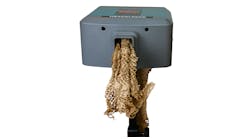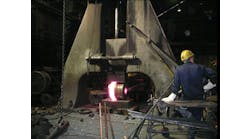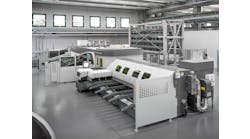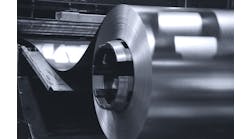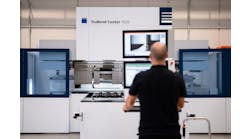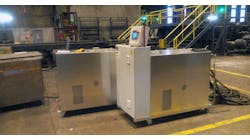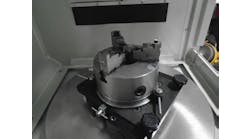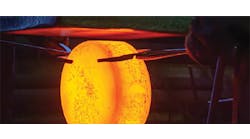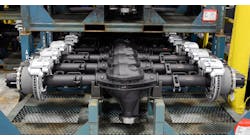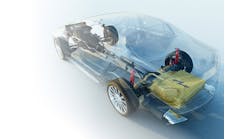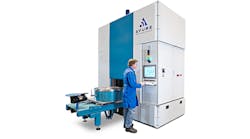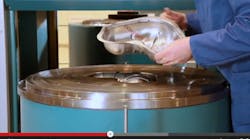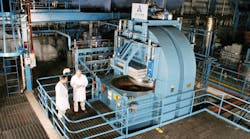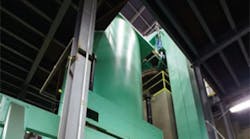Kale Pratt & Whitney, a joint-venture aircraft components manufacturer building a new operation in Izmir, Turkey, ordered a new hydroforming deep-drawing press from Avure Technologies, to form sheet metal parts for military aircraft engine programs.
Avure Technologies is a Swedish designer and manufacturer of high-pressure forming machinery, including hydroforming and isostatic pressing technologies.
“Avure’s new deep-draw press will enable high-end aircraft engine providers like Kale Pratt & Whitney to produce high-quality sheet metal components with great accuracy, repeatability, and lower costs,” explained Sture Olsson, global business unit director for sheet metal forming.
“Material draw ratios of up to 3:1 are achievable, eliminating several forming operations, intermediate heat treatments, and operator dependencies,” Olsson continued. “The hydroform process requires only one rigid tool half, the other being a flexible rubber diaphragm, leading to significant tool cost savings.”
Kale Pratt & Whitney was established in 2011 by Kale Holding (51%) and Pratt & Whitney (49%) to manufacture hardware for F135 engines, the P&W design that powers the F-35 Lightning II stealth fighter jets, as well as aircraft engine parts and sub-assemblies for the new PW1000G engine, which is installed in Bombardier C Series, Mitsubishi Regional Jet, Embraer’s E-jets, and the Airbus A320neo.
The press will start up this spring at a new plant the venture has established in Izmir, Turkey, to fabricate metal components and spare parts for P&W’s F100 and F119 fighter and F117 transport jet engines.
According to Devrim Erik, the operations manager for Kale Pratt & Whitney, the Avure press will help the new plant meet some ambitious production goals.
“The Avure deep-draw press will be a very important piece of equipment used in our sheet metal fabrication area, and will play a vital role in the jet-engine program,” Erik stated. “We chose Avure not only due to their vast experience in providing state- of-the-art high pressure presses but also due to their capability to support us in gaining the required application know-how for this complex manufacturing process as deemed necessary in the technology ramp-up phase we have ahead of us.”
